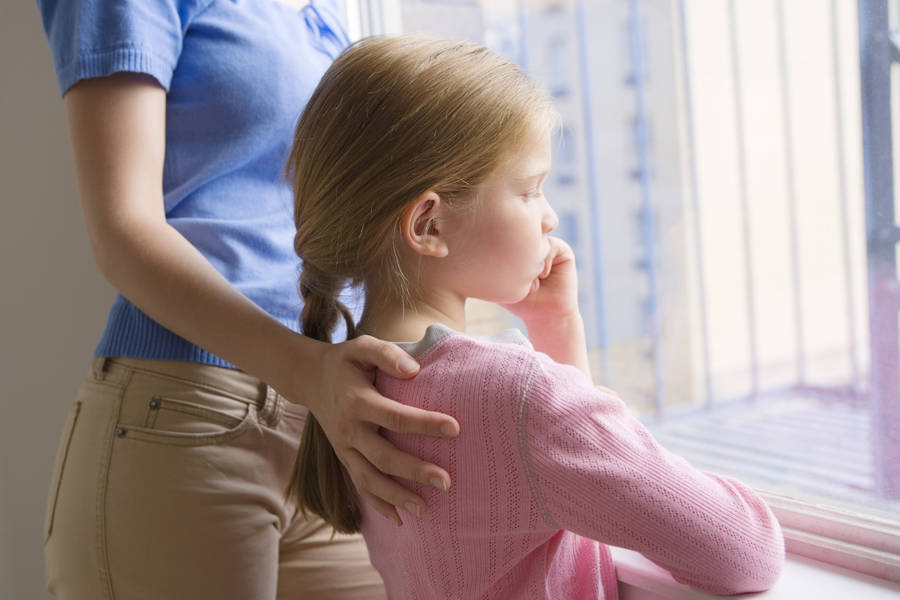Children coping with deployment – help available
By Lookout on Apr 19, 2017 with Comments 0

Stock photo
Maple Leaf ~
Military life can be stressful for children, especially when a parent deploys or the family has to relocate. As part of its continuing commitment to families, Chief of Military Personnel (CMP) recently asked Director General Military Personnel Research and Analysis (DGMPRA) to investigate how children handle the stress of parental deployment and relocation.
“We found that most children were proud and happy to be part of a military family,” said Dr. Alla Skomorovsky, a defence scientist who conducted the focus group research for DGMPRA.
He added that children in military families do feel different from children in civilian families, but most believe being part of a military family is a good thing. Children also enjoy some of the benefits of being in a military family, such as seeing new places, meeting new people, and feeling safe.
Despite some of the enjoyments of being part of a military family, children admitted that parental deployment is one of the most stressful experiences in their lives. In large part, because they worry about the safety of their deployed parent.
“Not everything he does is safe, and I worry that he is going to get hurt,” said a child from the focus group.
Deployment can also affect their emotions, physical health, and school performance. Some children had trouble sleeping and eating or concentrating in school, but having supportive and understanding teachers made a big difference.
“[My] teacher was aware [that my] Dad was deployed. When I broke down they were very supportive and understood,” said another teen.
When a parent was deployed, children also reported changes in their responsibilities at home and having less time for extracurricular activities.
They also saw their at-home parent under more stress during deployments and their relationships with siblings sometimes changed. Some children reported fighting less with their siblings in order to support one another, while other children reported fighting more often.
“It’s important for parents, teachers, and other adults to be aware of the effects of deployments and relocations on children from military families and to support them during these times,” said Dr. Skomorovsky.
She added that parents need to be aware of the programs for children offered at Military Family Resource Centres (MFRC). The Children’s Deployment Workshops are a great example of MFRC programming, which can play a positive role in helping children cope with the stresses of military life.
The DGMPRA researchers uncovered some effective strategies children use to deal with deployments and relocations—strategies that help them remain resilient in the face of these stresses:
Social support. Children seek social support from their friends, the at-home parent, relatives, and teachers. Some children commented that support groups with other children of deployed parents had been helpful. Children who had not attended showed interest in doing so.
Healthy distractions. Many children found it helpful to put things in perspective, remembering that others were going through the same thing. Others express themselves through music, dance, sports, or other activities. Some children distanced themselves from others, but admitted this caused problems when making friends and it took them longer to adjust to a deployment.
Bonding with the at-home parent. Spending more time with their at-home parent helped children cope with the absence of their deployed parent.
Staying in touch with the deployed parent. Children often talked with the deployed parent by telephone or Skype, but some found this distressing. “I don’t want to start crying and make him feel even worse,” said one child. While difficult for some, most children said it was helpful being able to speak to their deployed parent.
Maintaining the psychological presence of the deployed parent. Several children said their deployed parent gave them a toy or another reminder of them before leaving. In other cases, children identified an object that could serve as a reminder of the deployed parent, such as a shirt or doll with the parent’s picture on it. “It’s easier sleeping, it’s like he’s there,” said one child.
Researchers found other things parents can do to help their children cope with deployments. The first is to explain what a deployment is and what it means, because it helps children make sense of their experience. The second thing is to explain the normal responses to deployment, such as worrying, and to prepare children for changes in their roles and responsibilities. Lastly, parents can encourage children to seek social support from others.
For more information: An article about this research was recently published and can be found at http://journals.sagepub.com/doi/pdf/10.1177/0095327X16670691
Filed Under: Top Stories
About the Author:





